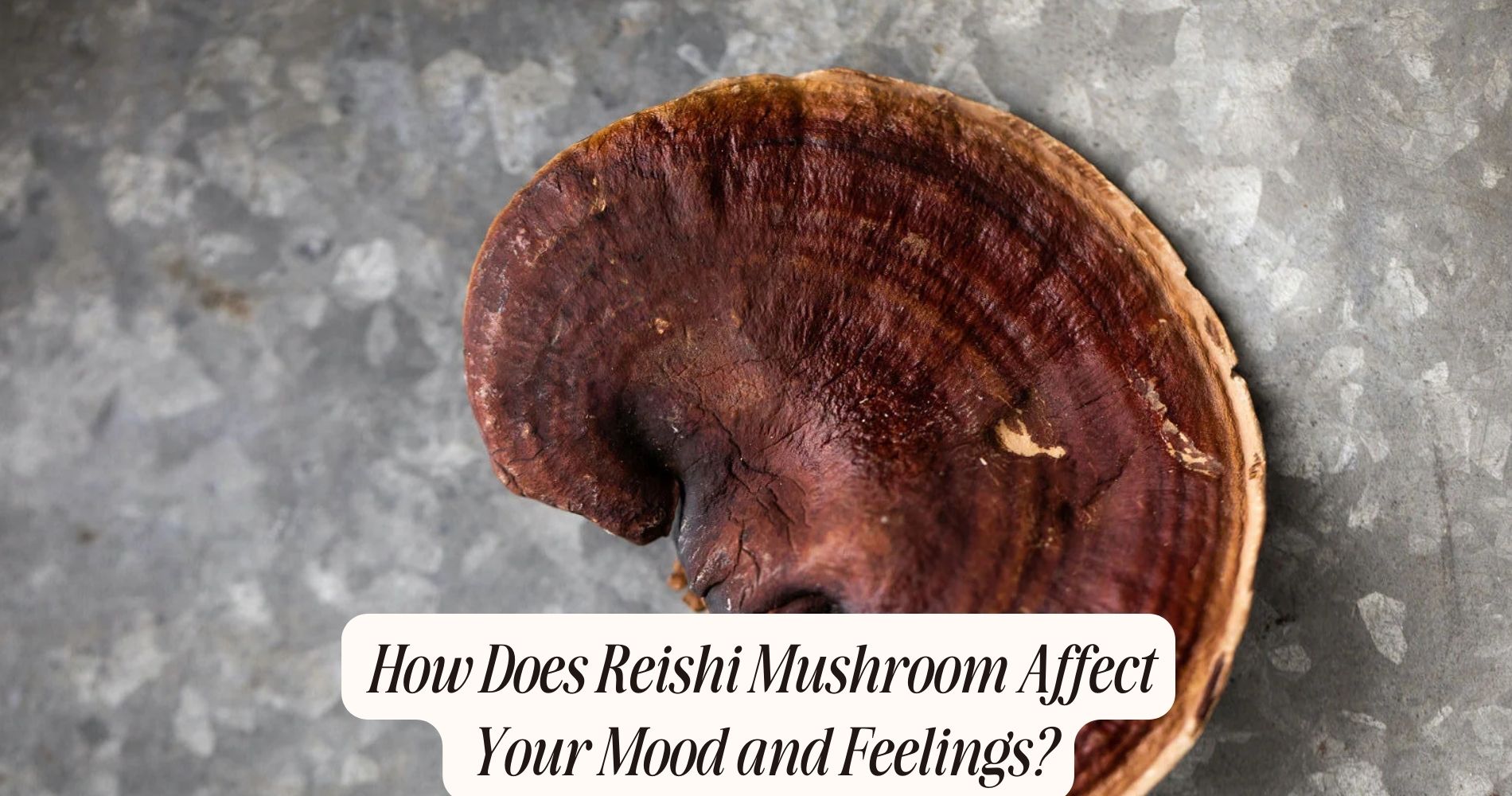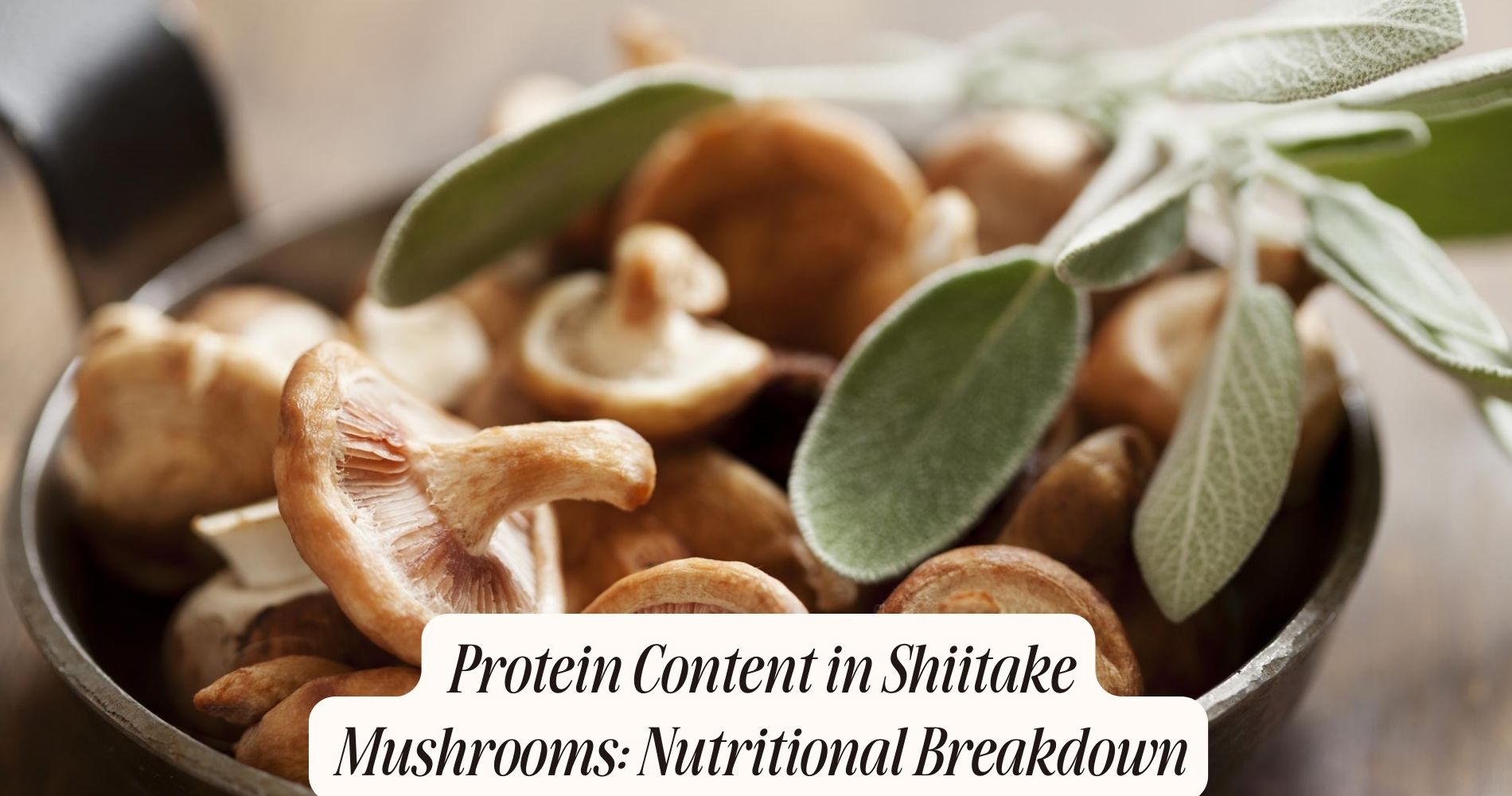
How Does Reishi Mushroom Affect Your Mood and Feelings?
Active Compounds in Reishi
Reishi mushrooms contain several active compounds, including triterpenoids, polysaccharides, and peptidoglycans, which are critical for their biological effects. Each component contributes uniquely to the mushroom's health benefits.
Triterpenoids, for instance, have demonstrated significant antioxidant properties, helping to neutralize free radicals that can damage cells. By mitigating oxidative stress, these compounds play a role in reducing inflammation and supporting overall cellular health.
Polysaccharides, another fundamental component, are notable for their immune support capabilities. They stimulate the activity of white blood cells, which are essential for fighting off infections. This immunomodulatory effect ensures that your body's defense mechanisms remain strong and responsive. Additionally, polysaccharides enhance the production of cytokines, proteins that regulate immune responses, thereby strengthening your immune system's ability to respond to pathogens.

Peptidoglycans further contribute to immune support by promoting the activity of macrophages, which engulf and digest cellular debris and pathogens. This collective action of triterpenoids, polysaccharides, and peptidoglycans creates a synergistic effect, enhancing the overall efficacy of Reishi mushrooms.
Impact on Neurotransmitters
You'll find that Reishi mushrooms greatly impact neurotransmitter activity. They boost serotonin levels, enhancing mood stability, and modulate dopamine production, which can influence feelings of pleasure and motivation.
Understanding these effects can help you appreciate how Reishi mushrooms might support mental well-being.
Boosts Serotonin Levels
Recent studies suggest that Reishi mushrooms can significantly increase serotonin levels by modulating the activity of key neurotransmitters in the brain. By enhancing serotonin synthesis, Reishi mushrooms may contribute to mood elevation. Serotonin, a critical neurotransmitter, plays a significant role in regulating mood, anxiety, and overall emotional well-being. The active compounds in Reishi mushrooms, such as triterpenoids and polysaccharides, have been shown to influence the serotonergic system directly.
When you consume Reishi mushrooms, these compounds can cross the blood-brain barrier and interact with serotonin receptors, promoting the production and release of serotonin. This biochemical interaction boosts serotonin availability in synaptic clefts, thereby enhancing neurotransmission efficiency. Elevated serotonin levels can result in improved mood, reduced anxiety, and a general feeling of well-being.
Moreover, Reishi mushrooms may inhibit the activity of monoamine oxidase (MAO), an enzyme responsible for the breakdown of serotonin. By preventing serotonin degradation, Reishi promotes sustained serotonin activity in the brain. This dual action—promoting serotonin synthesis and inhibiting its breakdown—makes Reishi mushrooms a potent natural agent for mood regulation.
Modulates Dopamine Production
By modulating dopamine production, the active compounds in Reishi mushrooms, such as ganoderic acids and polysaccharides, can profoundly influence the dopaminergic pathways in the brain. These compounds interact with dopamine receptors, enhancing dopamine synthesis and release. This modulation can lead to improved mood regulation and cognitive function, as dopamine plays a vital role in reward, motivation, and emotional responses.
Reishi mushrooms also offer immune support and antioxidant properties, which indirectly affect dopamine levels. The immune-modulating effects help maintain a balanced immune system, reducing inflammatory cytokines that can negatively impact neurotransmitter production. By lowering oxidative stress through its potent antioxidant properties, Reishi helps protect dopaminergic neurons from damage, ensuring effective dopamine signaling.

You'll find that Reishi's significant impact on the brain's neurochemistry, combined with its immune-supporting and antioxidant capabilities, makes it a powerful ally in maintaining mental health. Regular consumption of Reishi mushrooms can lead to a more balanced mood and heightened emotional resilience.
Stress Reduction Benefits
The bioactive compounds in reishi mushrooms, such as triterpenoids and polysaccharides, have been scientifically shown to modulate the body's stress response by influencing the hypothalamic-pituitary-adrenal (HPA) axis. By affecting the HPA axis, reishi mushrooms can lead to cortisol reduction, which is vital for managing stress levels.
Cortisol, often termed the 'stress hormone,' plays a significant role in the body's fight-or-flight response. Elevated cortisol levels can lead to various health issues, including weight gain, high blood pressure, and disrupted sleep patterns.
In addition to cortisol reduction, reishi mushrooms contribute to anxiety relief by balancing neurotransmitter activity and reducing oxidative stress. The polysaccharides in reishi help mitigate oxidative damage in the hippocampus, a brain region involved in stress responses.
Additionally, triterpenoids exhibit anti-inflammatory properties that further support the body's natural stress-reduction mechanisms.
Anxiety Management
In addition to stress reduction, reishi mushrooms play a significant role in anxiety management by modulating neurotransmitter levels and reducing oxidative stress in the brain. These mushrooms contain compounds such as triterpenoids and polysaccharides that interact with the nervous system to promote homeostasis. By modulating the levels of neurotransmitters like serotonin and dopamine, reishi mushrooms can help stabilize your mood and mitigate anxiety symptoms.
The reduction of oxidative stress also contributes to cognitive clarity. Oxidative stress can impair neuronal function and lead to anxiety and other mood disorders. Reishi mushrooms' antioxidant properties help neutralize free radicals, thereby protecting brain cells and enhancing overall cognitive function. This results in a clearer mind, making it easier for you to process thoughts and emotions without the interference of anxiety.
Furthermore, the mushroom's adaptogenic qualities help balance the nervous system's response to stressors, reducing the risk of anxiety spikes. By maintaining a balanced nervous system, you're less likely to experience the physiological symptoms of anxiety, such as rapid heartbeat or shortness of breath.
Enhancing Emotional Resilience
When you incorporate Reishi mushrooms into your regimen, you may notice improved emotional resilience due to their stress reduction mechanisms.
These mushrooms' bioactive compounds modulate the hypothalamic-pituitary-adrenal axis, thereby mitigating anxiety and stabilizing mood.
Stress Reduction Mechanisms
Reishi mushrooms frequently modulate the hypothalamic-pituitary-adrenal (HPA) axis, thereby enhancing emotional resilience through stress reduction mechanisms. By regulating cortisol levels, Reishi helps maintain a balanced stress response. Cortisol, an essential stress hormone, is important for managing how your body reacts to stress.

However, chronic stress can lead to elevated cortisol levels, resulting in fatigue, anxiety, and other health issues. Reishi mushrooms assist in keeping cortisol levels within a healthy range, thereby mitigating these adverse effects.
Moreover, Reishi provides significant adrenal support. The adrenal glands, responsible for producing cortisol and other stress-related hormones, can become overworked during periods of prolonged stress. Reishi's adaptogenic properties help these glands function effectively, preventing burnout and enhancing your overall stress resilience.
This support is crucial in maintaining not only your physical health but also your emotional well-being.
Anxiety Management Benefits
Leveraging its adaptogenic properties, the Reishi mushroom modulates neurotransmitter activity to alleviate anxiety and bolster emotional resilience. By influencing the hypothalamic-pituitary-adrenal (HPA) axis, Reishi helps regulate cortisol levels, thereby reducing the physiological manifestations of anxiety. This regulation is important as chronic stress and elevated cortisol can exacerbate anxiety symptoms.
Reishi's anti-inflammatory effects also play a significant role in anxiety management. Inflammation has been linked to the development and progression of mood disorders, including anxiety. By reducing pro-inflammatory cytokines, Reishi mitigates inflammation, thereby contributing to a more stable emotional state. This anti-inflammatory action is complemented by Reishi's ability to enhance immune support, which is crucial since a compromised immune system can negatively impact mental health.
Furthermore, Reishi influences the gamma-aminobutyric acid (GABA) receptors, which are pivotal in maintaining calmness and reducing anxiety. By enhancing GABAergic activity, Reishi promotes relaxation and emotional resilience.
Additionally, Reishi's polysaccharides exhibit neuroprotective properties, supporting overall brain health and further aiding in anxiety reduction.
Mood-Stabilizing Properties
By modulating neurotransmitter activity and supporting neurogenesis, the intake of Reishi mushroom can enhance mood stability and bolster emotional resilience. Reishi, known scientifically as Ganoderma lucidum, has been utilized in traditional uses and ancient remedies for centuries. It works by influencing the balance of neurotransmitters such as serotonin and dopamine, which are vital for mood regulation.
The bioactive compounds in Reishi, including triterpenes and polysaccharides, have been shown to reduce the secretion of stress hormones like cortisol, thereby mitigating stress-induced mood swings.
Furthermore, Reishi mushroom promotes neurogenesis—the growth and development of new neurons. This is particularly significant because neurogenesis in the hippocampus, a brain region associated with emotion and memory, plays an essential role in emotional resilience. Enhanced neurogenesis can lead to improved cognitive function and a more stable emotional state.

Modern scientific studies corroborate these ancient remedies, indicating that Reishi's traditional uses have a basis in its biochemical interactions within the body. By incorporating Reishi into your daily regimen, you may find it easier to navigate emotional challenges, thus maintaining a balanced and resilient mood. Its multifaceted approach makes it a potent ally in emotional well-being.
Sleep Quality Improvement
Numerous studies have shown that the bioactive compounds in Reishi mushrooms can significantly enhance sleep quality by modulating the body's stress response and promoting relaxation. This adaptogenic fungus contains triterpenes and polysaccharides, which help in insomnia relief by influencing the hypothalamic-pituitary-adrenal (HPA) axis. When you consume Reishi, it helps reduce cortisol levels, which are often elevated in individuals suffering from chronic stress. Lower cortisol levels contribute to a more balanced circadian regulation, making it easier for you to fall asleep and stay asleep.
Additionally, Reishi mushrooms have been found to increase the duration of non-rapid eye movement (NREM) sleep stages. NREM stages play a significant role in restorative sleep, aiding in cellular repair and memory consolidation. By enhancing these stages, Reishi promotes that your body undergoes the necessary reparative processes overnight.
Moreover, the mushroom's high concentration of antioxidants helps mitigate oxidative stress, thereby promoting an overall sense of well-being that extends to improved sleep patterns.
Incorporating Reishi into your regimen could be a natural, effective strategy for addressing sleep disorders and enhancing overall sleep quality. This adaptogen acts on multiple physiological pathways to optimize your body's natural sleep-wake cycles.
Daily Usage and Dosage
To maximize the sleep-enhancing benefits of Reishi mushrooms, it's important to understand the appropriate daily usage and dosage. Studies suggest that the usage frequency should be consistent, typically involving daily intake to build up the active compounds in your system. Reishi mushrooms contain triterpenes and polysaccharides, which are believed to contribute to their calming effects and enhanced sleep quality.
The ideal dosage can vary depending on the form of Reishi you choose. If you're using a standardized Reishi mushroom extract, a common dosage range is 1.5 to 9 grams per day. For Reishi powder, doses typically range from 1 to 1.5 grams daily. Always start with the lower end of the dosage range to gauge your body's response before gradually increasing to the best dosage.
It's important to consult with a healthcare professional before starting any new supplement regimen, especially if you have underlying health conditions or are taking other medications.
Consistent usage frequency and adherence to the best dosage can help you experience the full spectrum of Reishi's mood-enhancing and sleep-improving benefits. Remember, individual responses can vary, so monitoring your own experience is key.
Frequently Asked Questions
Are There Any Side Effects of Taking Reishi Mushrooms?
Yes, you might experience side effects from taking reishi mushrooms, especially with improper dosage frequency. Common issues include allergic reactions, dry mouth, dizziness, and digestive problems. Always consult a healthcare professional before starting any new supplement.
Can Reishi Mushrooms Be Taken With Other Medications?
You should consult your healthcare provider about medication interactions before taking reishi mushrooms. They can advise you on dosage guidelines to guarantee safety and avoid potential adverse effects when combined with other medications.
Is Reishi Mushroom Safe for Pregnant or Breastfeeding Women?
You shouldn't take reishi mushrooms during pregnancy or breastfeeding. The hormonal fluctuations and potential impacts on maternal health haven't been thoroughly studied, so it's best to avoid them and consult your healthcare provider for personalized advice.
How Long Does It Take to Feel the Effects of Reishi Mushrooms?
You'll typically start to feel reishi mushroom's effects after a few days to a few weeks, depending on dosage recommendations and personal experiences. Consistent use and proper dosage are essential for experiencing its full benefits.
Can Reishi Mushrooms Interact With Alcohol Consumption?
Yes, reishi mushrooms can interact with alcohol consumption. Combining them may strain liver health, as both substances require hepatic processing. Additionally, alcohol can impair cognitive function, potentially counteracting the cognitive benefits attributed to reishi mushrooms.
Conclusion
Incorporating reishi mushrooms into your daily regimen can greatly enhance your mood and emotional well-being. The active compounds in reishi influence neurotransmitter activity, aiding in stress reduction and anxiety management.
By promoting emotional resilience and improving sleep quality, reishi mushrooms offer a comprehensive approach to mental health. Following recommended dosages guarantees maximum benefits, making reishi a valuable addition to your wellness routine.




